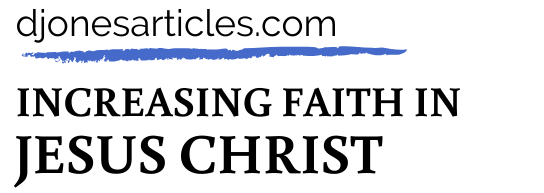Recently I read an article by the Church of Jesus Christ of Latter-Day Saints that gave suggestions of how to use our time wisely. I quoted part of that article last week, listed below is the second half of that article.
Focus
Close the door. Turn off all notifications. Put your phone on airplane mode. Spend the next 25 minutes totally focused on that one thing that you have determined is most important. Then take a break. Don’t look at your phone. Stand up and stretch, take a sip of water, take five deep breaths.
Now hit it again for another 25 minutes. This time, when you pop your head up, give yourself a little pat on the back for how much you have accomplished in an hour. Measuring our progress and congratulating ourselves for having done a good job is good for our mental state.
Chunk out big times for uninterrupted focus. Schedule short times to get caught up with team members, express appreciation, and call home (that is right). Check in with the ones you love so you remember why you are working so hard.
Word about scheduling
Schedule phone calls and email blocks. Use the phone for conversations and use email for delivering reports and updates and making requests for information. A lot of time is wasted in email threads when a simple conversation would do. Chunk out big times for uninterrupted focus.
Schedule distractions
None of us can focus all day long on one thing. Our brains work better when we take breaks: a 10 minute walk, 20 minutes of quiet time with our eyes closed, five minutes to read a sports blog. Many people are turning to meditation in the afternoon. Simply sit in a chair for five minutes and do nothing more than count your breaths—in, out. Clear your mind of everything else.
Multitasking is a huge time waster, but dual-tasking is different
Studies have shown that it doesn’t work. Our brains can do only one thing at a time, so switching rapidly between tasks increases the time it takes to accomplish them. But dual-tasking is different.
We can do two things at once if one is physical and one is mental, like folding laundry while talking on the phone. It’s the same at work. Go for a walk while you make your phone calls.
You get your exercise in and knock out your phone calls at the same time. Dual-tasking is best done in the afternoon, when mundane tasks need to be done. And if it’s a really mundane task, like restocking shelves or cleaning out files, make it a competition. Challenge yourself to get it done in a set amount of time, or compete with your coworkers.
Last things last
Hit the pause button before you go home. Make a list of things that need to be continued or started the next day. Then focus on your home life. Your children, your spouse, your parents, your friends—they all need you in some way.
Pick and choose what you can do, and don’t let the evening run you ragged with requests from all sides. See to family first. Help with homework or housework. Make time to have conversations, to focus on the people who are the most important in your life. Turn your phone off when you’re all together.
Now when you go to bed, you’ll know you did the best you could. Express your gratitude to God for the day, and you’ll be ready for the next one.
In summary
Here are a few things to think about:
When we have too much to think about, we don’t do anything. Prioritize.
There is no such thing as multitasking, but dual-tasking can be very helpful. Stay focused on the outcome. What do you really want for you, your family, or your coworkers?
You lose self-confidence when you break promises to yourself. Be realistic in your expectations. Know what you want, and then make enough reasons to accomplish it.
Say no occasionally. Learn to give yourself a break. Schedule things that make you happy. Give away some of your time to make somebody else happy. For a more detailed discussion on the Wise Use of Time call (231) 383-8359 or send an email dallasjones8349@yahoo.com
